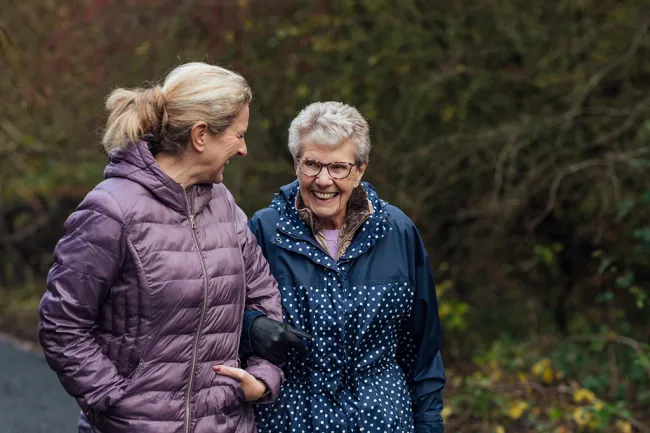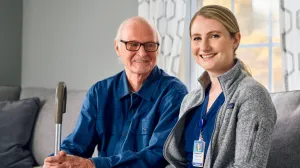
Caring for our aging loved ones can bring both joy and challenge. When memory lapses or changes in behavior arise, it’s natural to wonder if it’s just part of getting older — or something more serious.
If you’ve found yourself quietly worrying that these signs could point to dementia, you’re not alone. Dr. Brent Forester, a nationally recognized expert in geriatric psychiatry and Alzheimer’s research, is here to help you recognize early symptoms so you can take the next step with confidence and care.
What is dementia?
Dementia isn’t one disease — it’s a general term for a decline in cognitive function that interferes with daily life. It can affect memory, communication, judgment, problem-solving and behavior. While it’s normal to experience some changes with age, dementia symptoms go beyond what’s typical.
10 early signs of dementia to watch for
- Short-term memory loss: You may notice your loved one asking the same question repeatedly or forgetting recent events.
- Difficulty completing familiar tasks: Activities like preparing a meal or managing medications may suddenly become confusing or overwhelming.
- Disorientation: They might forget how they got somewhere, get lost in familiar places or lose track of time easily.
- Communication challenges: Struggling to find the right words, repeating themselves or having difficulty following conversations.
- Changes in mood or personality: Uncharacteristic irritability, depression, anxiety or a sudden lack of interest in things they once enjoyed.
- Poor judgment: Wearing summer clothes in winter or making risky financial decisions without explanation.
- Misplacing items frequently: Putting things in strange places (like a wallet in the fridge) and being unable to find them.
- Visual-spatial difficulties: Trouble judging distances, reading or navigating stairs safely.
- Withdrawal from social activities: Avoiding hobbies, friends or community gatherings without a clear reason.
- Sleep and appetite changes: Unusual sleeping patterns or changes in appetite or eating habits.
Forgetfulness vs dementia: What’s the difference?
It’s completely normal for aging adults to experience occasional forgetfulness or slower thinking. Here are a few examples to help you recognize the difference.
| Normal aging | Possible dementia |
| Occasionally forgetting names, but remembering later | Repeatedly forgetting names and not recalling them |
| Misplacing keys occasionally and retracing steps | Placing items in strange places and being unable to retrace steps |
| Taking longer to learn new tech or routines | Struggling with familiar routines like using the microwave |
| Brief confusion about the day | Losing track of dates, seasons or where they are |
| Occasionally searching for a word | Frequent trouble finding words or following conversations |
When to seek help
If you notice more than one of these signs — especially if they get worse — it’s time to talk to a doctor. A primary care clinician can evaluate what’s going on and connect you with the right resources. An early diagnosis can make a big difference in planning, support and access to treatment.
The bottom line
Watching someone you love go through changes in memory or behavior can be overwhelming. But you’re not alone. Recognizing the signs is the first step toward getting the care and dignity your loved one deserves.

